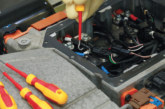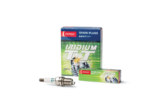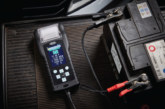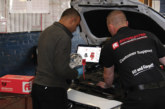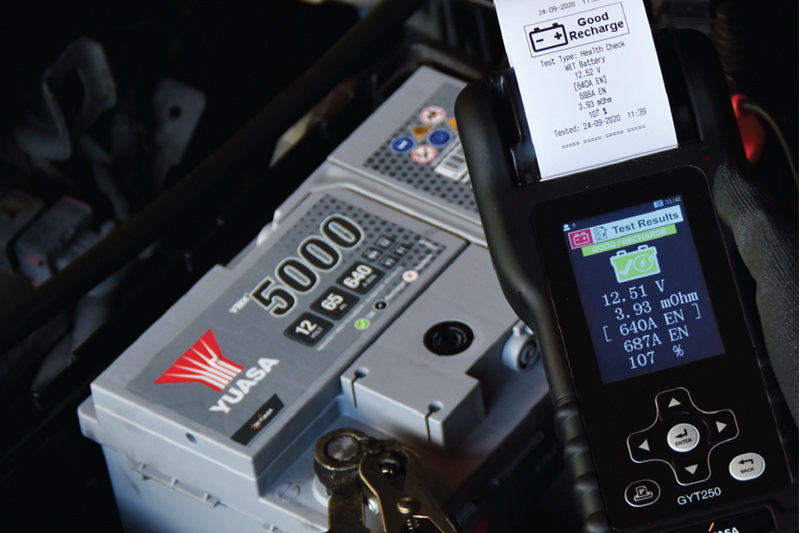
James Douglas and Peter Whittaker, GS Yuasa Battery Sales UK’s Marketing and Product Manager, and Technical Services Manager, respectively, discuss the launch of the company’s battery and electrical system tester, the GYT250.
Q. You’ve recently launched the new GYT250 battery tester. Can you tell us more about it?
Peter Whittaker (PW): It’s a multiple function tester that covers starter batteries in various technologies. It also includes additional functionalities not available in the market in the form of leisure battery tests. The tester also benefits from the inclusion of starter, alternator and earth tests for an all-round testing package for workshops and distributors. A feature that is new to the market and not seen on any other tester is a larger than average LCD colour display screen with a very clear picture-based menu structure.
James Douglas (JD): The key point to note is the GYT250 is a battery analyser and tester that has been developed by a battery company. No one knows batteries like GS Yuasa. We’ve worked with our technicians and scientists in our labs to make sure that this is the most accurate tester that’s available for warranty, in car health check and stock check.
We know that garages want something that is easy and simple to use, so as well as making it accurate, we’ve worked to make the GYT250 the most user-friendly and fastest tester available on the market. The user interface is intuitive, incorporates colour and is easy to use. As it’s developed by us and has the most up to date algorithms, made by GS Yuasa, it is going to be the most accurate tester garages can get.
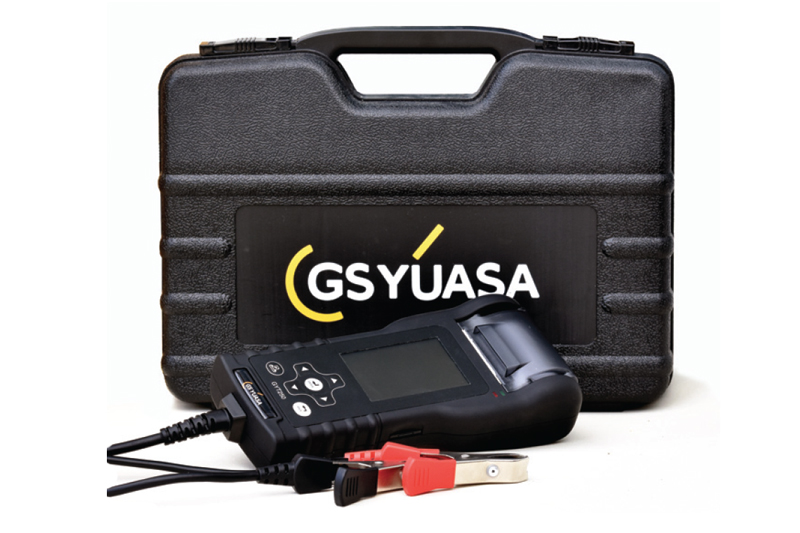
Q. Why have you developed this tester and how will it benefit technicians?
JD: We know how important it is for our customers to be able to check every battery, to understand failure modes, and to test for returns properly.
Our ‘Always Check the Battery’ programme states that anyone dealing with batteries should be testing the battery on every vehicle coming in. This is particularly important now in these periods of reduced usage due to lockdowns.
Even before the usage changes this year, one in 10 vehicles potentially needed their battery replacing because it would have failed in the near future. By testing every battery, garages are not only helping the customer out by preventing a failure, but by taking the sale and not allowing it to go to the breakdown service, they’re benefitting themselves.
Another reason for developing the GYT250 is that businesses need to be able to test battery warranties effectively in order to make sure they are only honouring genuine warranty returns. They need to understand the failure. This helps the customer as well because if they are doing something detrimental to their battery, they would like to know how to prevent this in the future.
A battery that has failed due to reduced usage is not covered under warranty, so the GYT250 will be able to help users identify that.
The GYT250 also allows distributors and workshops to test their stock batteries, so they can handle their stock correctly. This is to make sure that when they are selling batteries, they are being stored and sold in the best possible condition.
The battery is just part of an electrical system of a vehicle, so this tester can accurately test the battery and also check the starter system, alternator and earth. Therefore, it will not only give a really accurate diagnosis of the battery, but also an entire overview of that car’s electrical charging system.
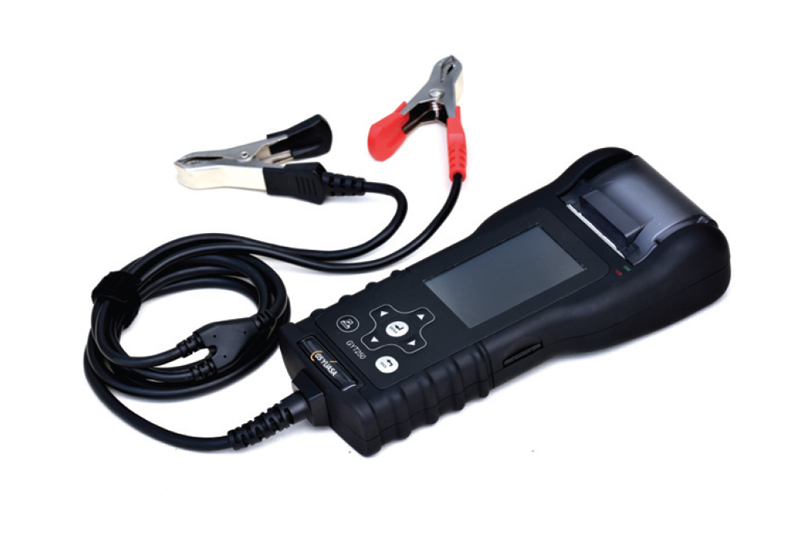
Q. How does it differ from general battery testers currently available on the market?
PW: The majority of tester manufacturers on the market are copying each other, to some degree. The benefit of a battery manufacturer producing this type of tester is that we verify the CCA results in alignment with real world cold cranking test data at -18°C. This is something that other manufacturers generally don’t have access to because of the costs involved.
Overall, the tester is not just designed for testing GS Yuasa batteries, it has algorithms for general health checks of any manufacturer’s battery coming into a workshop. In addition to that though, for the distributors, the warranty algorithm is tuned specifically to GS Yuasa batteries because of historical testing. It has allowed our engineers to build an image of what constitutes a reject or a valid replacement.
You also have a back-loaded motorcycle list of GS Yuasa products which is based on real world CCA capability, not just the label rating. It is the most accurate motorcycle battery tester on the market.
JD: We have tested a lot of other manufacturer’s products to help develop the GYT250, so we know the algorithm is far superior. In addition, we have also included easy to use features such as, ‘repeat last test’, a ‘quick test’ function, and an SD card to store and process test results.
The GYT250 has EFB and AGM algorithms as well, not just for automotive products but for commercial vehicle batteries, too. We have refined the CV battery test algorithm to better suit the large plate surface area of commercial vehicle batteries.
We have also developed this tester at a really sensible price point. We don’t believe workshops should have to pay £500 or £600 to get their hands on a tester. It doesn’t need to be that expensive! We’ve developed this to be good quality but at a competitive price point. Our mission is to get everyone testing batteries to improve their customer service and increase sales.
Q. How does this fit in with the ‘Always Check the Battery’ scheme?
JD: The ‘Always Check the Battery’ scheme has been taken up by thousands of garages across the country, and these garages are all using their entry level battery testers. What we are now hoping is that because they have gotten used to testing batteries, this new piece of kit is going to give them more potential.
It gives technicians more functionality, and as it is reasonably priced, there is a natural progression from the small ‘Always Check the Battery’ tester to a GYT250 tester. It effectively gives workshops more beneficial features with the same ease of use and user-friendly design.

